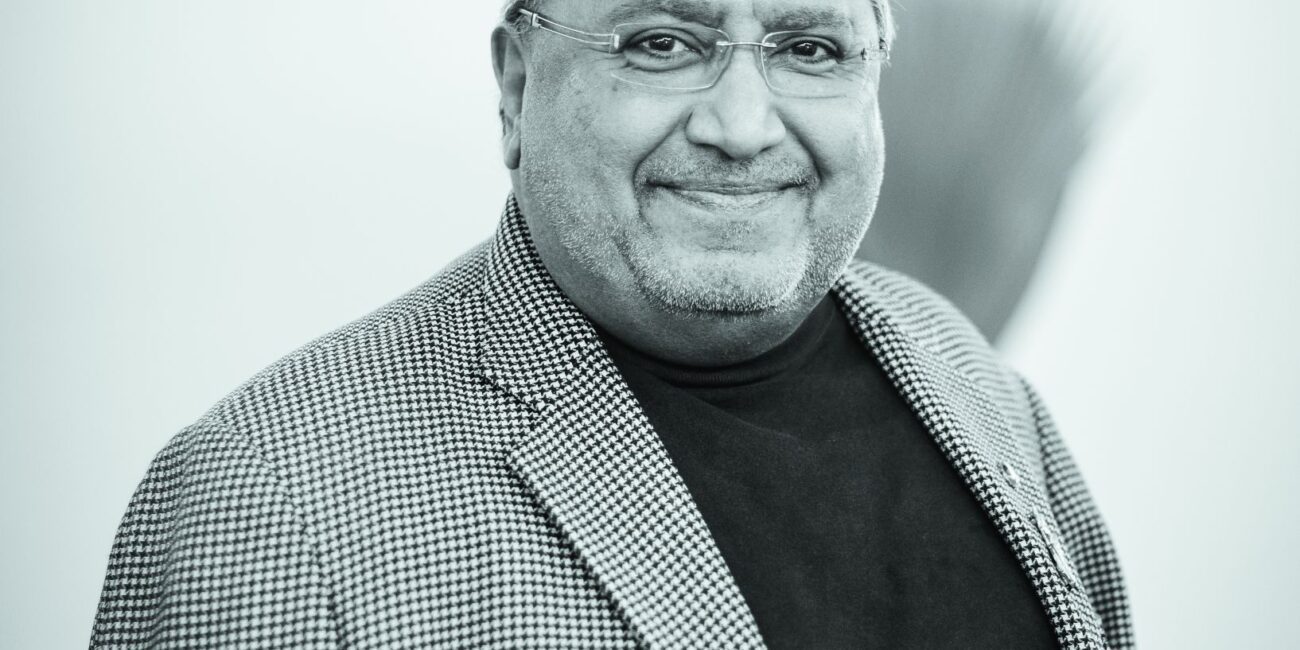Dr. Mel Gill is a psychologist who inspires millions of listeners during his motivational speeches. As an internationally recognized business and training consultant, he was invited by Rogers to intervene during the Rogers Leaders Awards, held on 31 August 2017. During his time in Mauritius, he delivered seminars on leadership to the subsidiaries of the group.
Photos. Gilliane Soupe.
For years, we’ve believed that a leader is someone on top of everything, who keeps things under control. It may be an old-fashioned conception of leadership. How is the leader of the 21st century?
Leadership can’t be learned. If you don’t have it inside of you, you’ll never have it. Some people who are in leadership position need external validation and say to themselves “let me see how they react to me.” Leaders don’t concern themselves with what people think about them. They would love to hear what their opinions are about the job they’re doing. The scope of a leader is to see everything in context, to step away from the situation.
Leaders are creative people who aren’t focused on problems, but on solutions. They’ll look at the list and will assemble a team to map out a strategy. And then, chart the way, with pure courage. You can transfer this courage to other people, because if they see a courageous person, they go into battle. Imagine Rogers as a starship enterprise going through space in an unchartered territory. The one in charge has very little idea of what’s going to happen next, and yet he manages to stir the wheel really well making sure that everybody is doing exactly what he’s supposed to do. You need to find the one who has that will to take Rogers to the next level. Leadership is inspiration, simply by the things you do, and how you respond to your tasks.
What is the difference between leadership and management?
Once upon a time, “Made in Japan” was not tantamount to quality. But Edward Deming went up there and taught them about Statistical Process Controls (SPCs) and Six Sigma. He introduced a zero defect, quality assurance mind-set in everyone. As a result, the Japanese made sure there was no defect the first time around – you don’t fix a problem, you prevent it. A leader has that kind of foresight. On the other hand, Deming also said that the reason for failure in a company is management. If your management is not trained or not adequate in what they do, then their learning curve will affect the income curve of the company, ultimately leading to various losses within a company. So sometimes age has its various advantages.
But can we be a good leader but not a good manager, and vice versa?
If you’re a good leader, you’re good at everything! You’re not a leader because somebody made you a leader. Leaders assume responsibility for the whole team, they don’t blame the team but blame themselves. Leaders let the team be independent in running what they’re doing. In many companies, the employees see the managers as contemptuous. There will always be people complaining because you’re not doing anything perfect anyway. But one cannot please everyone. A leader’s task is not to please everyone but to make sure that the job is done. Not at the cost of people, but if they don’t gel by themselves, then you’ll need another big skill and that’s how to choose a team.
But how can a leader overcome a failure?
It’s a wonderful word, “failure.” Everybody sees it as a negative thing. But I see it like this. You know there’s a task to be completed. You’re on a journey to get a job done, but several steps along the way are your key performance indicators (KPIs). So you finish the first one, but you didn’t manage to reach the second one, and so we call this failure. But does failure mean you have to stop there? You don’t stop there! When you need to reach a goal, you have no choice: you have to continue. Failure pushes you to study what are the factors that made it go wrong. And the leader’s job is to be able to see these failures not as limits but as questions about how we can improve the organization. Imagine you are sailing from Mauritius and you have about 800km of open treacherous water to get to Madagascar. About halfway there, all of a sudden, the boat simply stops moving. Do you sit down and say “Oh no, I failed”? Do you go back from where you came? And if you don’t overcome that failure or figure out what went wrong, you die!
It feels like survival mode…
It is, of course! You see, that is the difference between somebody who is employed to be a leader and somebody who owns the company. If you’re not the owner, for everybody else this is a job. For the owner, this is his life. If this fails – he is screwed. So when you give everyone ownership of the company, even if it’s just a little bit, they will put their whole life on the line to make sure that the company is successful. You don’t need to worry about cultivating a leadership culture, or a culture of share and care. Ownership – that’s it! And you take care of your people; you get to know what their families are like, what are their pains and aches. When you are a leader and you recognize your people are giving up a portion of their lives for you, you will look after their needs and their family needs, so they’ll never be in want.
Since one of Rogers values is “Leadership”, what does it mean to be a leader for a group like Rogers in a country like Mauritius?
A leader trains other leaders. When this culture is implemented, then we demand the maximum from employees, and we thus make them into leaders. A leader is always a mentor, because a CEO plans succession from the moment they step into office and when you plan succession you are always developing leaders anyway. But you have to make sure people don’t go into cliques. You need to eliminate some of the issues that are present in Mauritius, like racism, and empower more women. I think if you have more women in power, there will be more of a balance.
A leader is always a mentor, because a CEO plans succession from the moment they step into office and when you plan succession you are always developing leaders anyway.




















